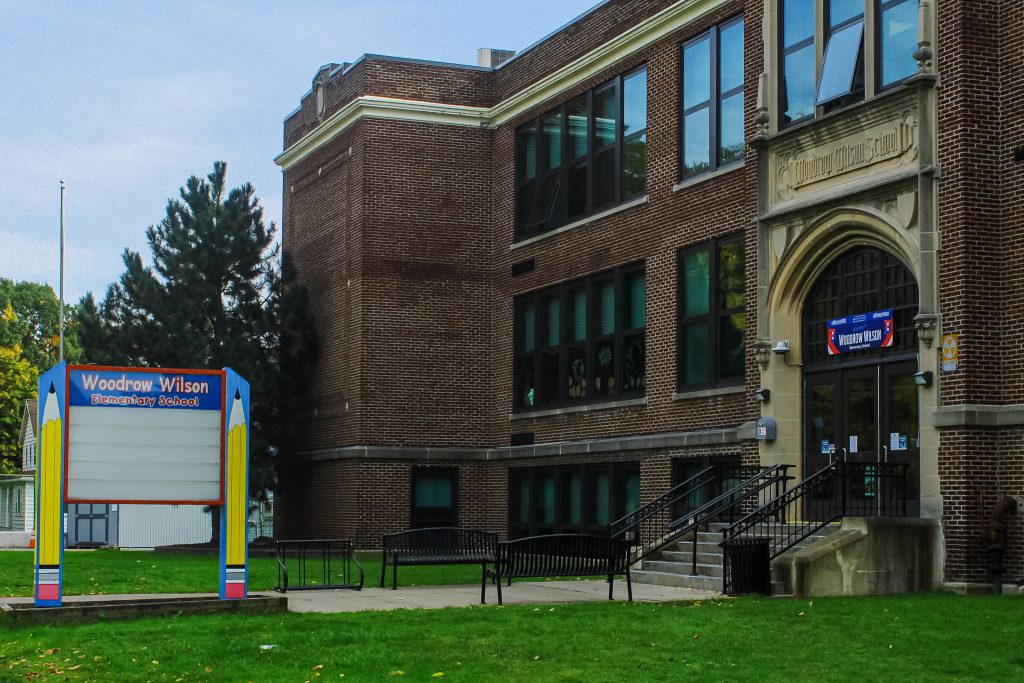Partly due to student housing crowding out single-family, low-income housing options, Binghamton City School District (BCSD) may close one of its elementary schools.
On Thursday, Sept. 29, BCSD administration held their third of four community forums in order to discuss a “feasibility study” of their elementary schools, with a special focus on Theodore Roosevelt Elementary School. This study examined factors ranging from enrollment and student interests to asbestos in the ceilings and walls. Parents spoke with Board of Education (BOE) members and district leadership, voicing concerns over construction and the closing of a school. One of these concerns included the district’s declining enrollment.
Student housing is decreasing the supply of low-income family housing and detracting from surrounding neighborhoods’ appeal to new, house hunting families, according to attending parents, residents and district leadership. This sentiment was echoed in a CNY Fair Housing study. According to this study, “with about half of Binghamton apartments marketed specifically as student housing and rising rental costs associated with the increase in the student population, families with children, particularly low-income families are facing limited options available to rent.”
In a statement, the BCSD BOE described the declining enrollment.
“As the population has declined in the City of Binghamton, the school district’s enrollment has also steadily declined during the past two decades,” the BCSD BOE wrote. “This decline can be attributed to several factors, and municipalities across the state and region have experienced similar trends. While there is a shortage of family housing in some Binghamton neighborhoods, this is just one of several factors impacting a decline in student enrollment.”
Enrollments are expected to continue to decline throughout all grade levels, with an optimistic projection forecasting a decline in enrollment by 86 students over five years for grade-levels K-5, according to the feasibility study. Another estimate suggests an enrollment decline of 383 students over five years.
One parent, who wished to remain anonymous, was optimistic enrollment would rebound, suggesting ways the district could better advertise itself. According to this parent, they and their partner were told by their real estate agent that the “good schools” were in Vestal. Upon enrolling at BCSD, they were surprised at the district’s quality and parent satisfaction.
“Well that’s the problem we have, is that a lot of times, a lot of the single family housing is being converted into student housing,” the anonymous parent said. “And we try to counter that. I see it in my own neighborhood — houses bought and prepared to be rented. But there is progress being made, there are efforts being made, I think, to help preserve affordable housing, single-family housing until it builds back. So I am optimistic, and I feel that in that area fewer houses will be swallowed up by kids.”
There are three outcomes being considered, according to the BCSD BOE — rebuilding Roosevelt and keeping all elementary schools open, rebuilding Roosevelt and closing either Horace Mann Elementary School, Thomas Jefferson Elementary School or Woodrow Wilson Elementary School, or closing Roosevelt. Roosevelt’s Summer Meals for Kids and Teens, teddy bear drive and its green space for children to play in, were all mentioned as parents expressed the potential impacts closing Roosevelt would have on their families.
In light of this news, some Binghamton University students raised the importance of knowing one’s surrounding community. Wendell Denis, a member of the Center for Civic Engagement Youth Initiative and a senior majoring in English, suggested the University could have more community-involved student programs. Denis said the University may not always realize its impact “on the lives of people that it would never directly touch.”
“I think there should be some kind of emphasis on the people that actually live here because it’s their home at the end of the day,” Denis said. “It’s like, you come in for a little bit of time and change up a complete structure, pretty much. You never want to keep a blind eye on that, you always want that the people that live here have their own voice, always heard in those situations.”
Sumeet Patil, a first-year graduate student in the Master of Computer Science program, offered an international student’s perspective, describing how inexpensive rent off campus is a necessity for some students.
“We are also people who want to stay there just [because] it is cheap, because staying in the University is $1,000 and the food [is] extra, but staying outside [the University], it’s more like $400 a month plus food extra, so it goes $500, $515, not more than that,” Patil said. “We are saving a lot of money on that, we are not any potential threat [to competitors]. But [locally], the solution to this could be, the University could help us get some cheap housing. Or they [could] make some buildings, like there are for [undergraduates], that would be places for graduate students, as well.”



